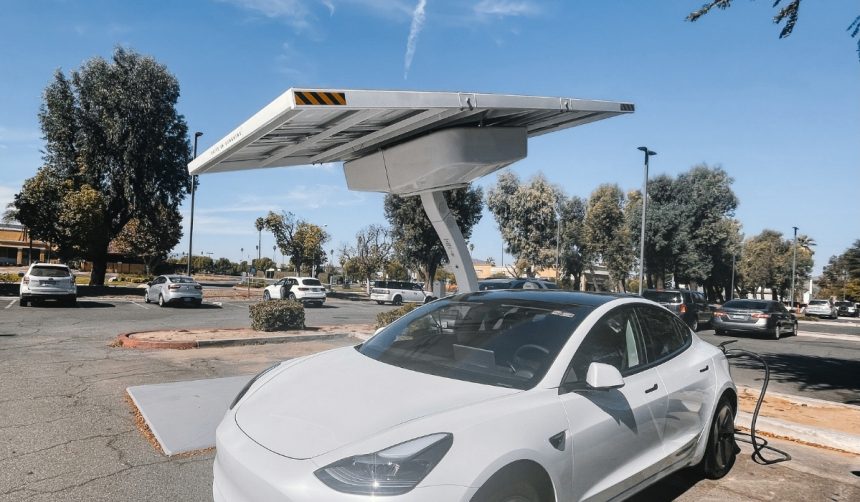Tesla is drawing renewed attention as speculation intensifies around its prospective “Model Q,” a potential addition to its lineup of electric vehicles aimed at affordability. Market watchers have discussed the significance of such a move, especially as more consumers look for cost-effective EV options. Expectations are running high within the industry, with many discussing how Tesla’s history of innovation could intersect with shifting market forces and consumer demands. New models could potentially alter the competitive dynamics among leading automotive brands, including legacy manufacturers and emerging electric vehicle specialists.
Distinct from earlier reports that suggested a variety of naming conventions such as “Model 2” or other identifiers for the forthcoming affordable Tesla car, recent analysis points to “Model Q” gaining traction in both financial circles and consumer discussions. Information from industry analysts paints a picture of mounting anticipation over the timing and pricing of these vehicles. Prior intelligence had only hinted at Tesla’s broad intentions without linking them to specific product strategies or delivery timelines. The current focus on the last quarter of 2025 for a possible release signifies a narrowing window for expectations compared to previous projections, which often placed launch dates in earlier terms or offered indefinite outlooks.
When Might the Model Q Be Launched?
Analysts at Deutsche Bank have pointed to the fourth quarter of 2025 as a probable period for the debut of the Model Q. This aligns with Tesla’s previous indications that its affordable models are “on track” for development, with most speculation centering on a formal introduction sometime next year. The firm cautions, however, that their delivery forecast of 1.58 million units remains tentative, largely hinging on the actual rollout date of the Model Q. Product timelines are seen as a variable that can significantly influence Tesla’s overall annual delivery performance.
How Will the Tesla Model Q Compete?
The Model Q is widely discussed as a competitor to popular budget-friendly vehicles like the Volkswagen ID.3 and BYD Dolphin, especially given the projected sub-$30,000 price range. Such a price point could position Tesla favorably in the entry-level electric vehicle market, which has become increasingly attractive to a broader spectrum of buyers. Deutsche Bank also references upcoming modifications to other models in the Tesla lineup, such as the Model Y L in China, which are expected to supplement the company’s role in competitive market positioning and diversification.
Which Financial Factors Affect Forecasts?
The anticipation surrounding the Model Q’s announcement features prominently in Deutsche Bank’s assessment of Tesla’s future performance. According to the firm, vehicle deliveries for the year are projected to fall short of consensus estimates, in part due to uncertainty about when the new vehicle might make its market entry. Potential changes in the product roadmap, including new launches, are identified as pivotal in shaping both market expectations and Tesla’s share of the electric vehicle sector.
Tesla’s vehicle delivery estimates heavily depend on the “timing of Model Q rollout as the key swing factor.”
Current enthusiasm over the Model Q echoes prior cycles of rumors and speculation surrounding Tesla’s affordable model ambitions. Earlier reports on the company’s plans provided limited details and more fluid timelines, often focusing on broader objectives like cost reduction and expansion into mass-market segments. The information available now highlights a more concentrated playbook, bridging past conjecture with emerging details such as pricing targets and competitive benchmarks for the Model Q. This refined perspective reflects a shift from generic anticipation to a more defined set of expectations regarding Tesla’s future product strategies.
Bringing an affordable electric vehicle like the Model Q to market could prove significant for Tesla as it faces increased competition from established automakers and new entrants. For potential buyers, a lower-priced Tesla may open access to the brand, expanding its user base beyond traditional demographics. Meanwhile, investors and analysts are closely monitoring developments, mindful that successful delivery on these promises could shape Tesla’s performance in coming years. As the Q2 Earnings Call approaches, attention will center on the disclosure of additional details or confirmation of the timeline for new models, supporting data-driven decision making for stakeholders. Buyers interested in the electric vehicle market should pay attention to substantive announcements from Tesla, which may affect not only product availability but also broader industry pricing and technology trends.
- Speculation around Tesla’s Model Q intensifies with expected 2025 launch.
- Analysts cite sub-$30,000 price as key for broad market appeal.
- Investors await Tesla’s disclosures on affordable models in upcoming earnings call.










